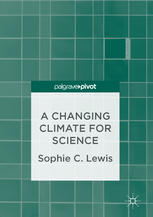

Most ebook files are in PDF format, so you can easily read them using various software such as Foxit Reader or directly on the Google Chrome browser.
Some ebook files are released by publishers in other formats such as .awz, .mobi, .epub, .fb2, etc. You may need to install specific software to read these formats on mobile/PC, such as Calibre.
Please read the tutorial at this link: https://ebookbell.com/faq
We offer FREE conversion to the popular formats you request; however, this may take some time. Therefore, right after payment, please email us, and we will try to provide the service as quickly as possible.
For some exceptional file formats or broken links (if any), please refrain from opening any disputes. Instead, email us first, and we will try to assist within a maximum of 6 hours.
EbookBell Team

4.0
16 reviewsThis book offers a critical exploration of first-hand experiences of practicing climate science. It tackles the pivotal question of what, precisely, constitutes contemporary scientific practice. The author offers an insider’s account of the experience of undertaking scientific training and of practicing as a climate scientist in order to examine the gulf between the way that science is perceived and pursued. Lewis delves into this discrepancy, drawing on personal experiences, recent scientific studies, extreme climatic events and political controversies. The book begins by considering the relevance of key concepts such as knowability, credibility, authority and objectivity to the practice of climate science. The following chapters argue that these concepts alone are limiting to our critical understanding climate science and climate change. The book then proposes a new view of scientific practice appropriate for diverse disciplines by arguing that concepts such as transparency and curiosity are equally important to scientific practice as the more familiar key concepts introduced at the start of the book. This book will appeal to climate scientists, social scientists and those interested in the challenges posed by future climate change.